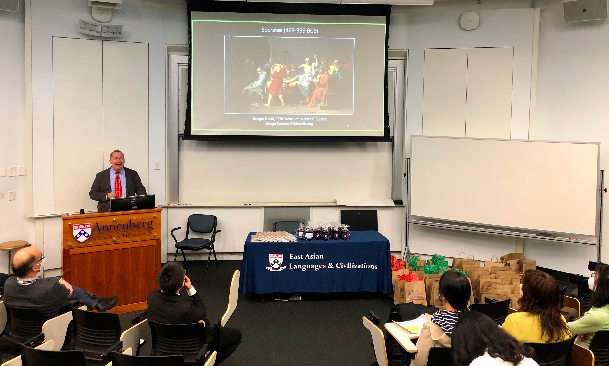David Gilbert, "QAnon Thinks Trump Says ‘Chy-na’ to Send a Secret Message About Ukraine", Vice 3/14/2022:
QAnon followers are boosting an unhinged new conspiracy theory that claims former President Donald Trump was purposely mispronouncing the word “China” for years, as part of a secret plot to alert the world that COVID-19 was manufactured in Ukraine.
The latest conspiracy theory being spread among QAnon adherents ties in with the wider conspiracy about U.S. biolabs in Ukraine and suggests that QAnon may be shifting its longstanding perception of China as the enemy.
The new conspiracy theory, first flagged by disinformation expert Marc Owen Jones, has been bubbling up on QAnon channels on Telegram for the past week.
First, some enterprising QAnon sleuth claimed to have “discovered” that there was a place in Ukraine called “chy-na” and further claimed that Trump’s distinct pronunciation of “China” was the former president’s attempt to signal to his followers that what he was talking about was “chy-na” in Ukraine, and not China.
In recent days, the theory has grown, and many QAnon followers now argue that when Trump referred to COVID-19 as the “China virus,” he was secretly referring to the Ukrainian chy-na, and trying to tell the world that the virus was manufactured in Ukraine, a claim that ties in with the broader belief that Ukraine is home to some “deep state” plot to control the world.
Read the rest of this entry »

